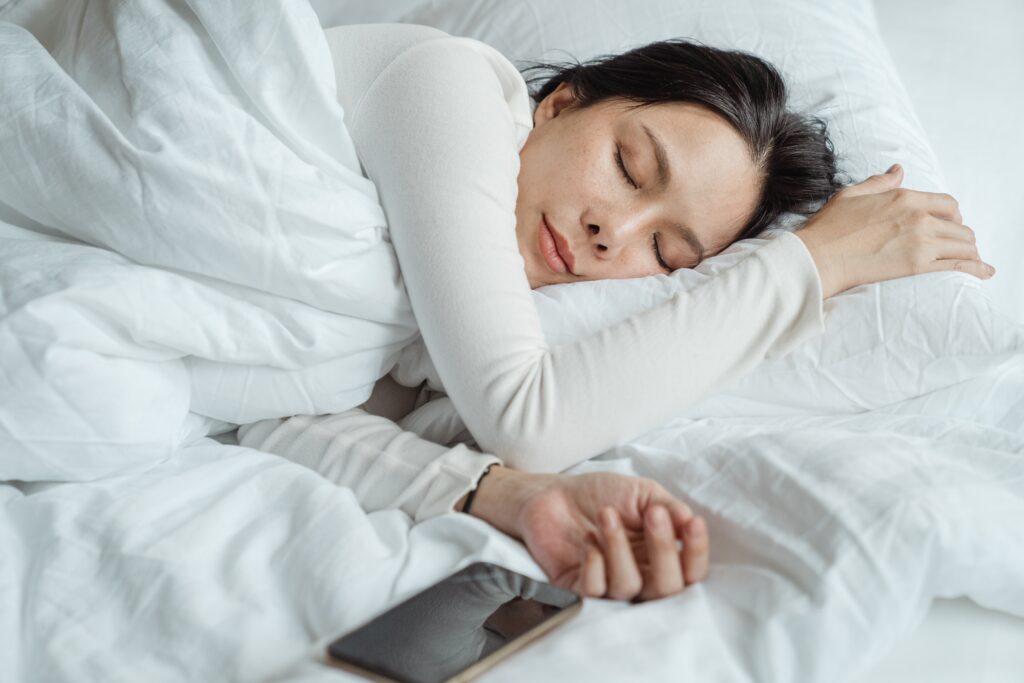Top tips for a good night’s sleep
Along with exercise, nutrition and managing pressure, sleep is sometimes called one of the “four pillars of health”. Getting a good night’s sleep is important for short-term and long-term health.
We all know that life can sometimes upset our plans, especially our sleep patterns. Children, illness, work, alcohol, light, noise, mosquitos… the list of things that can disturb your sleep is almost endless.
However, some of the factors that affect our sleep can be controlled to some extent and we can take steps to help us make sure we get a good night’s sleep.
We call these steps “sleep hygiene” and this short article covers the main points to think about, to help you sleep well.
If you’re concerned about your health or sleep, you should always talk to a medical professional at the earliest opportunity.
Key steps:
- Eat well and at the right times
- Establish a routine
- Manage your environment
- Managing your thoughts
- Exercise during the day
Eating well
What you eat and the times at which you eat can have a big impact on your sleep. It’s obvious to say that drinking a large espresso isn’t going to help you sleep, although the caffeine in coffee is also present in lots of foods.
Avoiding tea, coffee, chocolate and alcohol will all help you get a better night of sleep.
Eating smaller meals in the evening and avoiding larger meals before you go to bed will help too.
Fix your routine
“Plan your work and work your plan” is a very old business phrase. The same principles can apply to getting into a routine before you go to sleep too. Taking the same steps every night can help train your brain towards the right patterns and help you get to sleep.
Allow time to wind down before you go to sleep, between at least 30 and 60 minutes if you can. Try to wake up at the same time every day too, if you can.
Your brain needs time to wind down, so don’t work before you go to bed. A two-hour break from work before you go to sleep will help hugely.
Manage your environment
Try to avoid screens before you sleep, if you can. The light emitted can stimulate your brain and decrease melatonin levels (or disrupt the secretion of it).
Good curtains or blackout blinds can help reduce light pollution.
Cooler temperatures can help you sleep better too. Aim for between 18-21°c if you can. Remove TV’s and monitors.
Try to keep the bedroom for sleep and intimacy if you can, avoid working where you sleep.
Manage your thoughts
Wind down and stop working at least 2h before sleep. Write a ‘to do’ list to organise your thoughts and to avoid staying up to think about things. Avoid stressors such as news updates.
Quieten your mind with relaxation exercises e.g. gentle yoga stretches, breathing exercises, mindfulness, reading a book, audiobooks and sleep apps.
If you worry whilst lying in bed try to distract yourself e.g. think of as many objects as you can that are the colour blue, try to steer your thoughts away from your worries rather than towards them, accept your thoughts as they are.
Practice gratitude exercises – what are you grateful for, what amazing things happened during the day, what would have made the day even better?
Get outside and exercise
A minimum of 30 mins per day of exposure to natural sunlight will help keep your body clock or ‘circadian rhythm’ in check.
Consequently, your melatonin levels (which help you to wind down in response to darkness falling) will also be kept in check.
Schedule exercise at least 4 hours before bedtime to promote deep/restful sleep.
About Occupational Health Assessment Ltd
Occupational Health Assessment Ltd provides rapid access to expert occupational health support for businesses across the United Kingdom.
With a unique occupational health assessment service, fitness certifications and access to clinics in Belfast, Birmingham, Bradford, Brighton, Bristol, Cardiff, Coventry, Derby, Edinburgh, Glasgow, Hull, Leeds, Leicester, Liverpool, London, Manchester, Newcastle, Northampton, Nottingham, Plymouth, Portsmouth, Reading, Sheffield, Southampton, Stoke, Surrey and more, the business provides high quality, expert medical advice.
Please contact us for further information or assistance.
